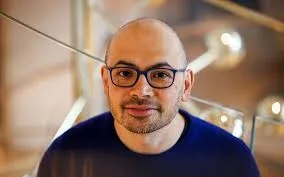In a groundbreaking statement that has stirred excitement across the tech and medical industries, Google DeepMind CEO Demis Hassabis recently claimed that AI-powered healthcare could cure all major diseases within the next 10 years. As one of the leading minds behind cutting-edge artificial intelligence technologies, Hassabis highlighted how machine learning and data-driven innovation are paving the way for the next great leap in human health.
The keyword AI-powered healthcare isn’t just a buzzword—it’s rapidly becoming the foundation for a global medical transformation. From disease detection and diagnostics to drug discovery and personalised treatment plans, artificial intelligence is already reshaping the way healthcare systems operate. But according to Hassabis, we’re only scratching the surface of what’s possible.
The Vision: Disease-Free Humanity in a Decade
Demis Hassabis, during a recent panel discussion, envisioned a future where artificial intelligence not only supports healthcare but revolutionises it to such an extent that major illnesses could become a thing of the past. “We’re entering a golden era of AI-powered healthcare,” he said, “and the speed of innovation we’re seeing now could lead to the cure of all diseases within 10 years.”
While that may sound optimistic to some, the rapid progress in medical AI makes the prediction seem increasingly realistic. Technologies like DeepMind’s AlphaFold, which predicts protein structures with astonishing accuracy, have already made monumental contributions to understanding diseases and accelerating research.
How AI Is Revolutionising Healthcare
AI is being applied across various domains of healthcare with remarkable success:
1. Early Diagnosis and Detection
AI algorithms are trained to detect abnormalities in medical scans, blood tests, and genetic reports. Diseases like cancer, Alzheimer’s, and diabetes can now be spotted at earlier stages than ever before, vastly improving survival rates.
2. Personalised Treatment Plans
By analysing vast datasets of patient records, symptoms, and treatment outcomes, AI can help create highly tailored treatment plans. This means no more one-size-fits-all solutions—each patient receives care uniquely suited to their biology and condition.
3. Drug Discovery and Development
One of the most expensive and time-consuming aspects of healthcare is developing new drugs. AI speeds this up dramatically by identifying potential compounds, predicting their effects, and simulating outcomes, all without expensive trial-and-error experiments.
4. Pandemic Prediction and Response
AI models have played a crucial role in tracking and forecasting the spread of diseases like COVID-19. In the future, they could provide even earlier warnings, giving governments and organisations precious time to act.
DeepMind’s Role in the AI Healthcare Revolution
Google DeepMind has already made headlines for its AI systems that rival human doctors in diagnosing eye diseases, breast cancer, and even recommending treatment paths. The release of AlphaFold in particular has been described as a historic milestone in biology and medicine.
AlphaFold’s ability to map protein structures with unprecedented precision has enabled scientists to understand how diseases function at a molecular level. This could lead to groundbreaking cures and therapies far quicker than traditional methods.
Challenges and Ethical Considerations
Despite the promise of AI-powered healthcare, the road ahead isn’t without obstacles. Ethical concerns about data privacy, algorithmic bias, and the over-reliance on technology continue to be hot topics in the healthcare sector.
Moreover, for AI to realise its full potential, collaboration between tech companies, governments, and global health organisations is crucial. Infrastructure needs to be built, regulations need to be updated, and AI literacy must be promoted among medical professionals.
The Global Impact: A New Era for Medicine
If AI achieves what Demis Hassabis envisions, the implications are enormous. Imagine a world where:
- Rare genetic disorders are diagnosed at birth and treated within weeks.
- Cancer is detected years before symptoms appear and eradicated at stage zero.
- Every human has access to affordable, effective, and personalised healthcare.
These are not science fiction dreams—they are emerging realities. And with AI’s exponential growth, they may arrive far sooner than we think.
Conclusion: AI-Powered Healthcare is the Future
The promise of AI-powered healthcare curing all diseases within a decade is not just visionary—it’s increasingly plausible. With relentless innovation, collaborative efforts, and a focus on ethics, artificial intelligence could become the most powerful healing tool in human history.
As we stand on the brink of a new medical era, the world watches with hope, anticipation, and awe. The next 10 years could redefine health and longevity as we know it.
